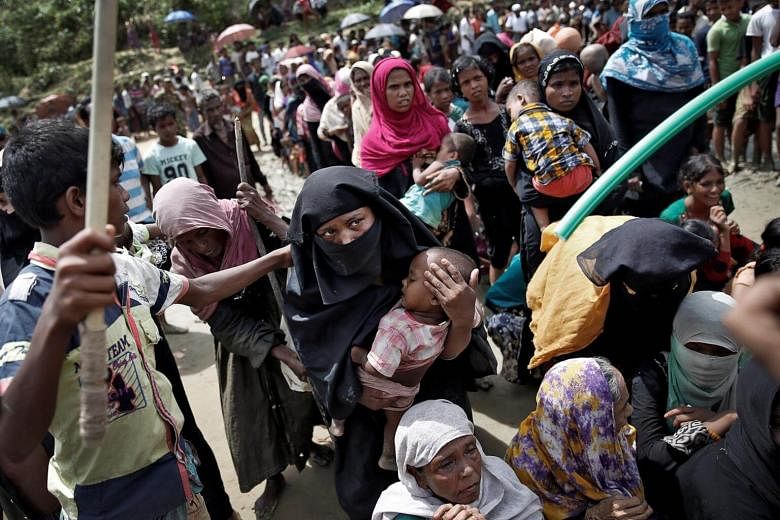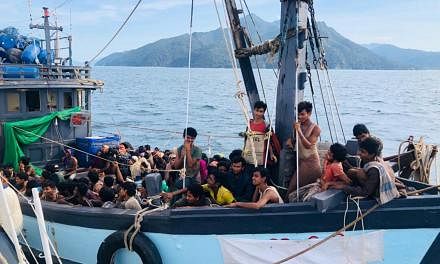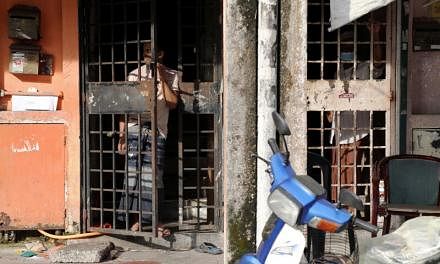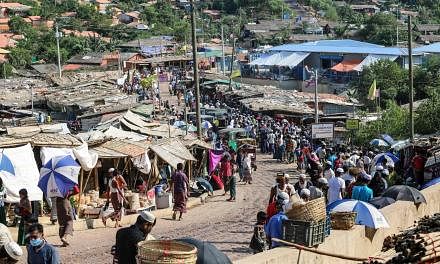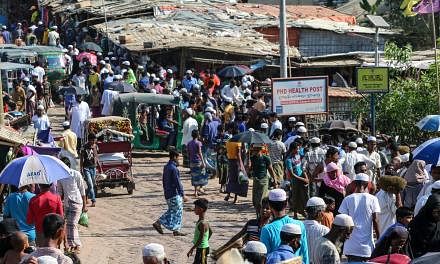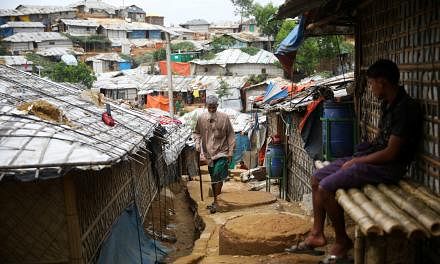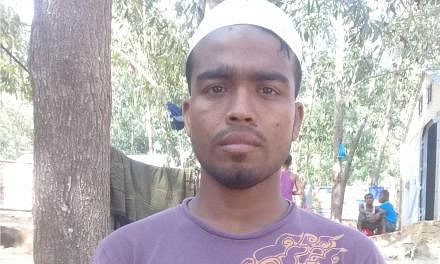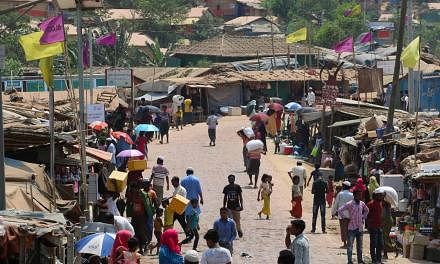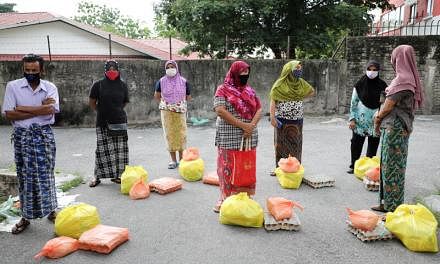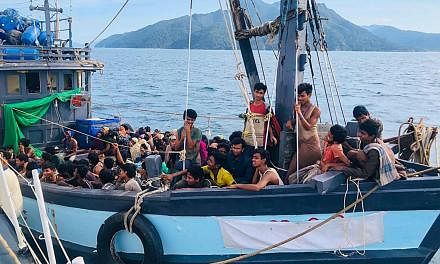GENEVA (AFP) - The nearly half a million Rohingya refugees who have entered Bangladesh since August will likely not be leaving soon, the United Nations said on Wednesday (Sept 27), calling for longer-term plans to manage the influx.
The head of the United Nations refugee agency, Filippo Grandi, called the current camp set up "a recipe for disaster", with overcrowding and unhygenic conditions creating a breeding ground for "possible epidemics."
"The important thing is to get people in places where they can be assisted more easily," Grandi told reporters in Geneva, referring to the estimated 480,000 mostly Muslim Rohingyas who have fled Myanmar violence.
"It is most likely that return will take time, if it happens, if the violence stops. It will be important also to find in the medium term suitable solutions for the people that are in Bangladesh."
"The first challenge is to get people out of the mud and the despair which they are finding themselves in", he added.
Grandi said he was in talks with Dhaka about forming a "technical committee" with the UN to look at options for longer-term Rohingya settlements.
"There are in reality many different options that the Bangladesh government is studying, and understandably they are not easy", he said, noting the strain placed on local communities in the Cox's Bazar area on the Myanmar border.
Aid agencies say that the largely makeshift camps in Cox's Bazar are bursting at the seams, amid struggles to bring in adequate food and shelter.
Impoverished Bangladesh has earned praise for its response so far.
Rohingya have been fleeing Rakhine state in north-east Myanmar for decades. The new exodus began on Aug 25 when deadly attacks by Rohingya militants on Myanmar police posts prompted a military crackdown.
The International Organization for Migration has estimated that there are more than 800,000 Rohingya currently in Bangladesh, including those who fled Myanmar before the latest crisis.
Myanmar's civilian leader Aung San Suu Kyi has said the country was ready to verify the refugee status of those who have fled, but has not guaranteed the right of return for all.
